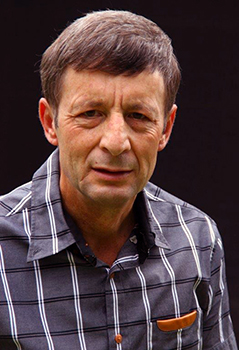Latest News Archive
Please select Category, Year, and then Month to display items
11 January 2021
|
Story André Damons
|
Photo Supplied
 Dr Ralph Clark
Dr Ralph Clark
The Afromontane Research Unit (ARU), the flagship research group of the University of the Free State (UFS) Qwaqwa Campus, has recently been granted R8,4 million to establish a Risk and Vulnerability Science Centre programme.
The Risk and Vulnerability Science Centre (RVSC) programme was established by the Department of Science and Innovation (DSI) as part of the Global Change Research Plan for South Africa and is funded by the DSI through the National Research Foundation (NRF). The RVSC will focus on the need to generate and disseminate knowledge about risk and vulnerability on global change challenges faced by local policy makers/ governance structures and communities in South Africa.
Invited to participate
Dr Ralph Clark, Director of the ARU, says the UFS, together with the University of Zululand and the Sol Plaatje University, has been invited to participate in Phase 2 of the RVSC programme. Dr Clark was approached by the DSI (on referral from the South African Environmental Observation Network – SAEON) in February 2020 regarding the potential for establishing a RVSC at the UFS Qwaqwa campus.
Subsequent interactions were held between the UFS and DSI, and in March 2020, the UFS formally accepted the DSI invitation. It has since been agreed that the RVSC: UFS will be hosted as a RVSC under the ARU umbrella, with dedicated personnel embedded at the UFS in this regard (internal processes and reporting) but reporting directly to the NRF regarding the RVSC.
Interest and support welcomed
Dr Clark welcomed this interest and support from the DSI-NRF, saying that the funds will further assist the UFS in growing its excellent and growing research portfolio and building more research capacity on this traditionally undergraduate-focused campus. “The RVSC will contribute to much-needed solutions in an area marked by major sustainability challenges and will assist in moving Phuthaditjhaba away from its negative apartheid history towards becoming a sustainable African mountain city,” says Dr Clark.
Prof Luyt says young researchers should not allow circumstances to determine their future
2016-02-01

Prof Riaan Luyt, an NRF B-rated researcher
Photo: Supplied |
Young researchers, who spend their life at a disadvantaged and rural campus like the University of the Free State’s Qwaqwa Campus, should not be deterred from achieving their dreams.
This is the view of Prof Riaan Luyt, former Assistant Dean in the Faculty of Natural and Agricultural Sciences, who achieved his B-rating by the National Research Foundation (NRF) late in 2015. This was by far the highest-ever rating on the Qwaqwa Campus.
“When I moved to the Qwaqwa Campus many years ago, having had the opportunity to do a post-doctoral fellowship in Polymer Science at the Leeds University in the United Kingdom, I was determined to get the Department of Chemistry off the ground, and to embark on serious research,” said Prof Luyt, who is now the Affiliated Professor in the Department of Chemistry and Research Associate Professor at the Centre for Advanced Materials, based at Qatar University.
“It was through sheer determination that I managed to obtain enough funds to equip a decent research laboratory. There were many obstacles over the years, but I managed to attract more and more postgraduate students and published more,” he said.
At first, Prof Luyt was not successful with his NRF-rating applications.
“My first couple of attempts to get rated produced no success. I was then awarded a C3-rating, which was later followed by C2 and then C1,” he added. “Getting a B-rating is the highlight of my research career. It shows that it can be done. Young researchers should not allow their past or present circumstances, or their work environment to stand on their way,” said Prof Luyt, who has supervised 38 master’s and doctoral students as well as 11 postdoctoral fellows. He has also published 185 papers in international and accredited journals.
Although abroad, Prof Luyt will continue to supervise eight postgraduate students at the Qwaqwa Campus.